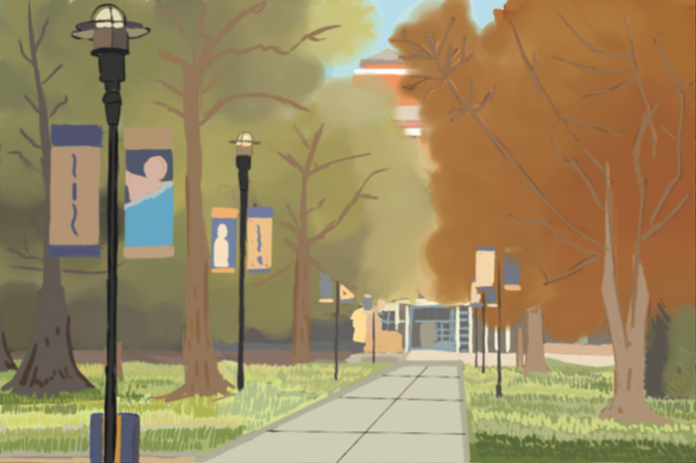SAD doesn’t last forever — take steps to improve your mental health
By MICHELLE MENDOZA — mimendoza@ucdavis.edu
It has been roughly a year since I first moved to Davis after the pandemic, and in that time I have grown to appreciate the campus’s foliage, especially during the later part of the year. In Southern California, we don’t get the opportunity to feel or see the seasons change so drastically. For some students, the change of weather signifies a time to pull out their winter sweaters, coats and thick blankets and get in the holiday spirit.
With the end-of-quarter stress, people start to recognize that they feel more anxious and tired, lacking motivation or energy. Many students are affected by the shorter days and lack of sunlight. Seasonal affective disorder (SAD), also known as seasonal depression, is defined as the recurrent mood disturbance or depressive episodes due to the change in seasonal patterns. SAD is a complex disorder that results from the interaction of several vulnerability factors acting at different levels, and the various genetic mechanisms that underlie them.
In general, seasonal depression is a shift in mood from your usual behavior. It is important to notice the atypical symptoms of depression in your everyday life. However, this can be especially difficult with daily pressures and responsibilities, along with the changes in our environment.
Research encourages regularly setting aside some time to adjust, destress and relax. While it is very easy to stay inside when it is cold or dark out, it is crucial to still reserve some time where you can sit out in the sun. Deficits in vitamin D — from the lack of sun or supplements — may hinder serotonin activity. This affects the production of melatonin, a hormone that regulates sleep. The combination of decreased serotonin and increased melatonin impacts our circadian rhythm that regulates our internal clock. Sitting outside in between classes, walking to the bus or reserving an hour outside every day can balance these productions.
Light therapy is also an easy and preventative way to regulate our body and emotions. However, our mental health is complex and needs more than one treatment. Talk therapy aims to shift negative association or unhelpful thoughts. Changing your perspective can have a drastic effect on your mood and relationships.
The most important thing to remember is that SAD is seasonal and eventually goes away. Recognizing our behavior and taking the steps necessary to take care of our mental health can help prevent or manage SAD. If you have any concerns, mental health services and counseling is available to UC Davis students.
Written by: Michelle Mendoza — mimendoza@ucdavis.edu
Disclaimer: The views and opinions expressed by individual columnists belong to the columnists alone and do not necessarily indicate the views and opinions held by The California Aggie.





